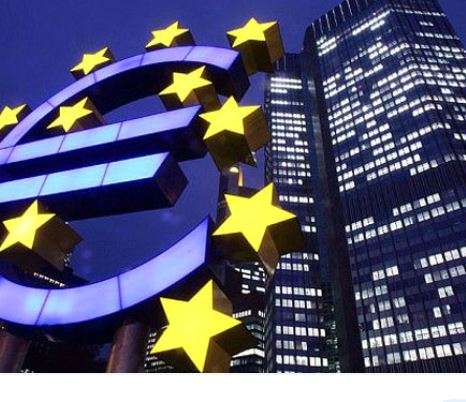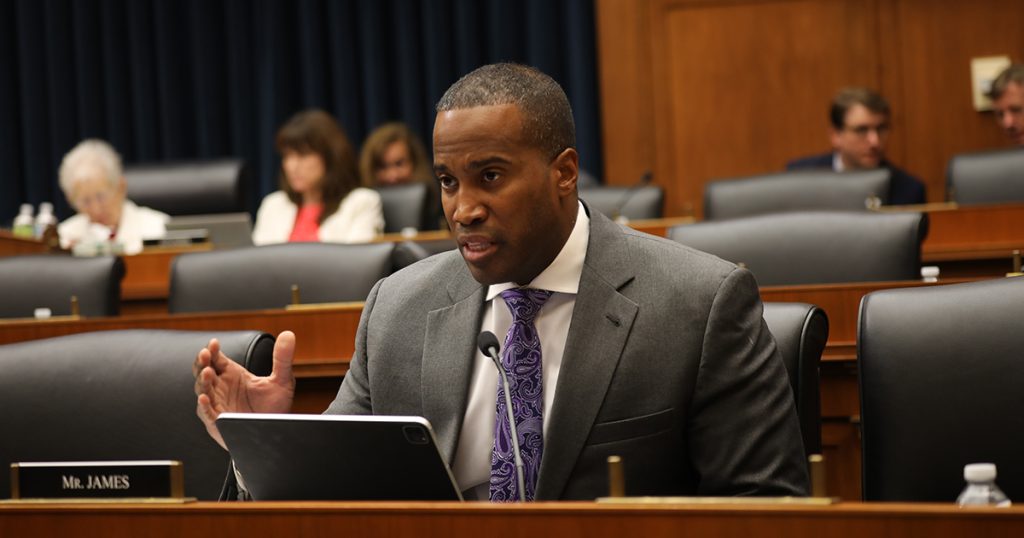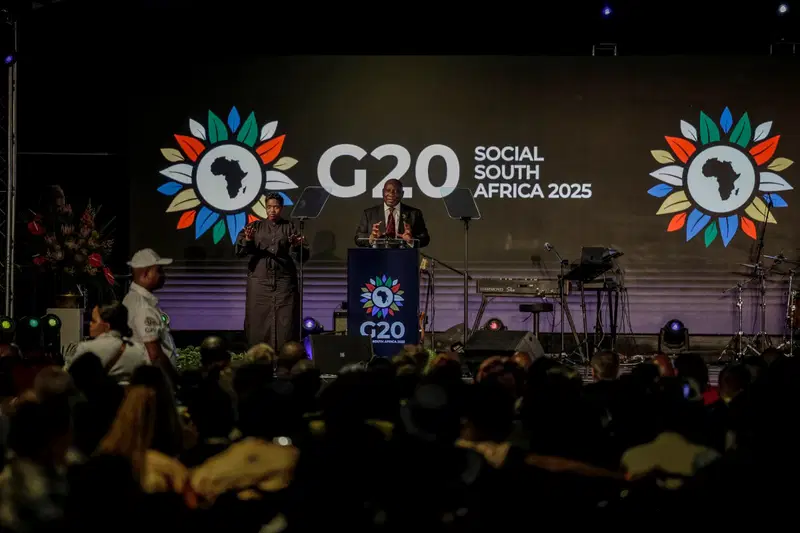Headline
Europe Woos US Scientists Fleeing Trump’s Policies With Paris Conference

French President Emmanuel Macron and European Commission head Ursula von der Leyen were on Monday set to host a conference in Paris aimed at attracting US researchers ready to relocate because of President Donald Trump’s policies.
European commissioners, scientists, academics and ministers for research from European Union member countries will discuss, among other things, financial incentives to lure disgruntled US scientists across the Atlantic.
Paris’s Sorbonne University is hosting the conference, called “Choose Europe for Science”, which is to close with speeches by Macron and von der Leyen.
Universities and research facilities in the United States have come under increasing political and financial pressure under Trump, including threats of massive federal funding cuts.
READ ALSO:‘My Wife Abandoned Me, Relocated To Canada Without My Knowledge,’ Man Tells Court
US research programmes face closure, tens of thousands of federal workers have been fired and foreign students fear possible deportation for their political views.
The 27-nation EU hopes to offer an alternative for researchers and, by the same token, “defend our strategic interests and promote a universalist vision”, an official in Macron’s office told AFP.
The French president has already appealed to foreign, notably US, researchers to “choose France”.
Last month, he unveiled plans for a funding programme to help universities and other research bodies cover the cost of bringing foreign scientists to the country.
– Flood of applicants –
READ ALSO: Trump’s Trade War Is ‘Wake-up Call’ For Europe
Aix Marseille University in the south of France announced in March it would open its doors to US scientists threatened by cuts.
It says its “Safe Place for Science” scheme has already received a flood of applicants.
Last week, France’s flagship scientific research centre, the CNRS, launched a new initiative aimed at attracting foreign researchers whose work is threatened.
It is also seeking to attract French researchers working abroad, some of whom “don’t want to live and raise their children in Trump’s United States”, according to CNRS President Antoine Petit.
An official in Macron’s office said Monday’s conference came “at a time when academic freedoms are retreating and under threat in a number of cases and Europe is a continent of attractiveness”.
One obstacle, experts say is the fact that while EU countries can offer competitive research infrastructure and a high quality of life, research funding and researchers’ remuneration both lag far behind US levels.
READ ALSO:Trump Threatens Huge Tariffs On European Wine, Others
But CNRS’s Petit said last week he hoped that the pay gap would seem less significant once the lower cost of education and health, and more generous social benefits, were taken into account.
Macron’s office said France and the EU were targeting researchers in a number of specific sectors, including health, climate, biodiversity, artificial intelligence and space.
The French government could finance up to 50 per cent of selected research projects, an official in the presidential office said, while assistance could also be offered in the form of tax incentives.
Non-EU members Norway, Britain and Switzerland are participating in Monday’s conference, Macron’s office said.
AFP
Headline
Nnamdi Kanu’s Case Proof Of Religious Persecution In Nigeria – US lawmaker, John James

Former chairman of the Africa Subcommittee and now a member of the Energy and Commerce Committee, Representative, John James, has claimed that the case of Nnamdi Kanu, the leader of the Indigenous People of Biafra, IPOB, is proof of religious persecution in Nigeria.
James stated this when the United States House Subcommittee on Africa on Thursday, held a public hearing to review President Donald Trump’s recent redesignation of Nigeria as a Country of Particular Concern.
The hearing in Washington, DC included senior US State Department officials and Nigerian religious leaders.
READ ALSO:JUST IN: Court Rules Judgment In Kanu’s Terrorism Trial
James claimed that in the case of Nnamdi Kanu, Nigeria’s Court of Appeal had struck down the charges against him and ordered his release in 2022.
He said: “Religious persecution is tied to political repression and weakening institutions in Nigeria. The detention of Mazi Nnamdi Kanu is a clear example.
“In 2022, Nigeria’s Court of Appeals struck down the charges against him and ordered his release.
READ ALSO:US Makes U-turn, To Attend G20 Summit In South Africa
“The UN Working Group for Arbitrary Detention has also called for his unconditional release, yet he remains in solitary confinement in deteriorating health and recently had to represent himself in court.
“Nigeria has signaled that the law is optional and targeting Christians is fair game. Just hours ago this morning, despite the pleas and cries of Nigerian people and many Nigerian lawmakers, Kanu was convicted on all charges.”
Nnamdi Kanu was on Thursday, sentenced to life imprisonment over terrorism charges.
Headline
Nigerians Don’t Trust Their Govt – US Congressman Riley Moore

US Congressman Riley Moore has said that Nigerian people do not trust their government.
Moore stated this on Thursday at US House of Representatives Subcommittee on Africa, which is investigating Trump’s redesignation of Nigeria as a ‘Country of Particular Concern’, CPC.
“The Nigerian people don’t trust their government. ‘How can you trust a government that doesn’t show up when you ask them to?
“The Nigerian government must work with the US in cooperation to address these insecurity issues.
READ ALSO:Trump’s Military Threat To Nigeria Reckless – US Congresswoman
“A case that just happened recently in Plateau state. We had a pastor there who warned the Nigerian government that they were under attack. There’s imminent attack forces here in the next 24 hours. Please come and help us.
“The Nigerian government did not only ignore it but put up a press release that it is fake news,” he said.
Moore would be meeting with a delegation of senior members of the Nigerian government, over the devastating insecurity in Nigeria and the US designation of the country as CPC, DAILY POST reports.
Headline
US Makes U-turn, To Attend G20 Summit In South Africa

In an 11th-hour about-turn, the United States has told South Africa it wants to take part in this weekend’s G20 summit in Johannesburg, President Cyril Ramaphosa said Thursday.
President Donald Trump’s administration had said it would not take part in the November 22-23 meeting and that no final statement by G20 leaders could be issued without its presence.
It has clashed with South Africa over various international and domestic policies this year, extending its objections to Pretoria’s G20 priorities for the meeting of leading economies being held for the first time in Africa.
“We have received notice from the United States, a notice which we are still in discussions with them over, about a change of mind about participating in one shape, form or other in the summit,” Ramaphosa told reporters.
“This comes at the late hour before the summit begins. And so therefore, we do need to engage in those types of discussions to see how practical it is and what it finally really means,” he said.
READ ALSO:South Africa’s Ramaphosa Tells Putin ‘War’ Must End
There was no immediate confirmation from US officials.
Ramaphosa said: “We still need to engage with them to understand fully what their participation at the 11th hour means and how it will manifest itself.”
In a note to the government on Saturday, the US embassy repeated that it would not attend the summit, saying South Africa’s G20 priorities “run counter to the US policy views and we cannot support consensus on any documents negotiated under your presidency”.
Ramaphosa said earlier Thursday that South Africa would not be bullied.
“It cannot be that a country’s geographical location or income or army determines who has a voice and who is spoken down to,” he told delegates at a G20 curtain-raiser event.
There “should be no bullying of one nation by another”, he said.
– ‘Positive sign’ –
Ramaphosa said the apparent change of heart was “a positive sign”.
READ ALSO:Drama As South African President, Ramaphosa Cries Out Over Missing iPad On Television
“All countries are here, and the United States, the biggest economy in the world, needs to be here,” he said.
South Africa chose “Solidarity, Equality, Sustainability” as the theme of its presidency of the G20, which comprises 19 countries and two regional bodies, the European Union and the African Union.
Its agenda focuses on strengthening disaster resilience, improving debt sustainability for low-income countries, financing a “just energy transition” and harnessing “critical minerals for inclusive growth and sustainable development”.
After early objections from Washington, it vowed to press on with its programme and its aim to find consensus on a leaders’ statement on the outcome of the discussions.
“We will not be told by anyone who is absent that we cannot adopt a declaration or make any decisions at the summit,” Foreign Minister Ronald Lamola said Thursday.
Trump has singled out South Africa for harsh treatment on a number of issues since he returned to the White House in January, notably making debunked claims of white Afrikaners being systematically “killed and slaughtered” in the country.
READ ALSO:Drama As South African President, Ramaphosa Cries Out Over Missing iPad On Television
He expelled South Africa’s ambassador in March and has imposed 30 percent trade tariffs, the highest in sub-Saharan Africa.
US businesses were well represented at a separate Business 20 (B20) event that wound up in Johannesburg Thursday.
The head of the US Chamber of Commerce, Suzanne Clark, thanked South Africa for fostering “real collaboration between G20 nations during a time of rapid change” during its rotating presidency, which transfers to the United States for 2026.
“The US Chamber of Commerce will use our B20 leadership to foster international collaboration,” Clark said.
The United States has significant business interests in South Africa with more than 600 US companies operating in the country, according to the South African embassy in Washington.
G20 members account for 85 percent of global GDP and around two-thirds of the world’s population.

 Sports4 days ago
Sports4 days agoNigeria Coach Blames ‘Voodoo’ After World Cup Hopes Crushed

 Metro3 days ago
Metro3 days agoOne Of 25 Abducted Kebbi Schoolgirls Escapes

 Metro3 days ago
Metro3 days agoJUST IN: Many Injured As Terrorists Ambush Nigerian Troops On Mission To Rescue Kebbi Schoolgirl

 News4 days ago
News4 days agoNewswatch Co-founder, Dan Agbese, Is Dead

 Headline4 days ago
Headline4 days agoGenocide: U.S. Lawmaker Alleges Tinubu Lying, Protecting Own Interest

 News4 days ago
News4 days ago198 UNIBEN Students Bag First Class

 News4 days ago
News4 days agoLegal Practitioner Backs Conversion Of ATBU To Conventional University

 News4 days ago
News4 days agoTinubu Addressing Development, Economic Growth, Peace, Security In N’Delta – PAP Boss

 News3 days ago
News3 days agoJUST IN: Police Seal Off PDP National Secretariat

 Metro2 days ago
Metro2 days agoBREAKING: Judge Orders Kanu Out Of Court Over ‘Unruly’ Conduct


























